Strength in Community
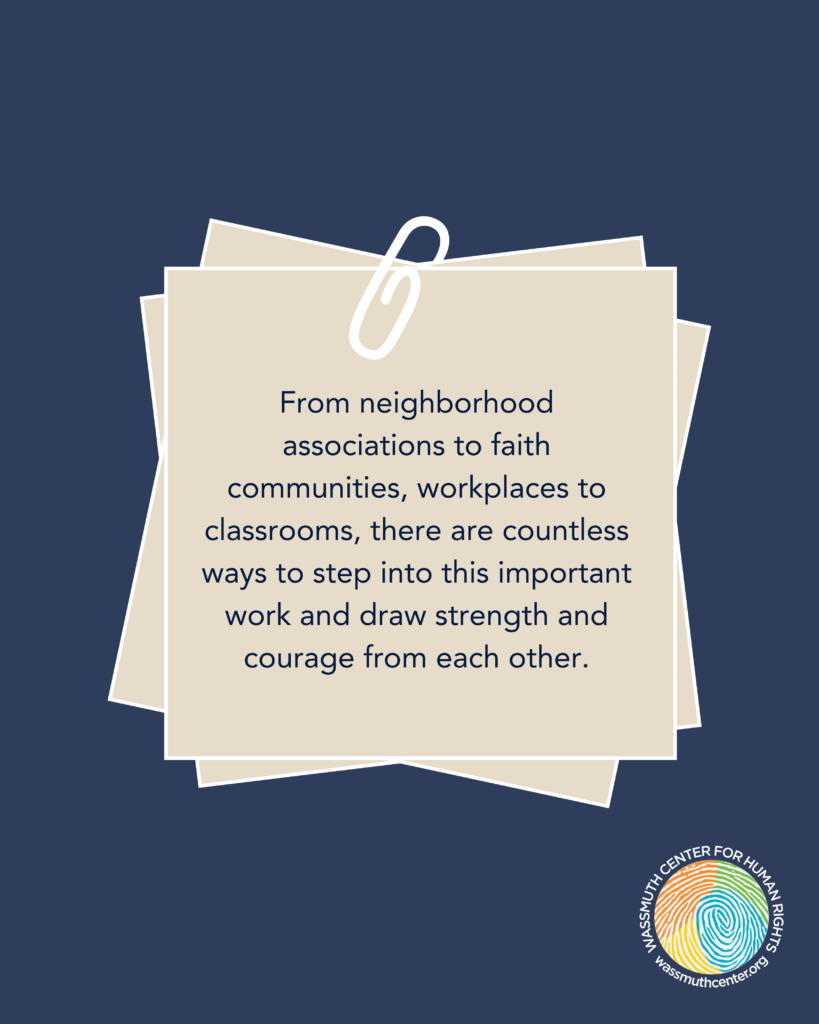
Strength in Community February 16, 2026 A room full of people committed to connecting, learning, and creating compassionate communities carries real power. This spirit is at the heart of our work at the Wassmuth Center, and it came vividly to life at last month’s Cultivating Compassionate Communities Conference. Nearly 300 people gathered not simply to attend an event, but to practice what it means to be in community — listening across differences, grappling with complexities, and imagining how to create a more just and joyful world. The Wassmuth Center’s third annual conference became a living example of how communities grow stronger when people come together with curiosity and courage. Throughout the day, participants engaged in sessions and conversations that invited reflection and action. Whether exploring how to rebuild connection across deep divides, examining the neuroscience of compassion, or wrestling with what authentic allyship looks like in practice, we leaned into learning that was both challenging and hopeful. This year’s conference theme — Everyone Is Welcome Here – Let’s Make It Real — invited participants to move beyond aspirational language and consider what belonging actually requires. Across sessions and conversations, we explored what it looks like to create more welcoming schools, workplaces, congregations, neighborhoods, and civic spaces through thoughtful design, courageous leadership, and daily practices that honor the dignity of all people. Keynote speaker Dr. Mitchell Maki grounded these ideas in history, sharing the story of Japanese American incarceration during World War II and the long struggle for redress that followed. His reflections challenged us to learn from the most difficult chapters of our country’s past so we can develop the moral clarity to recognize and respond to injustice in our own time. There was an unmistakable energy throughout the day: warm exchanges in-between strangers, serious questions posed, and a shared recognition that the challenges before us are significant but not insurmountable. Participants left with new relationships, deeper knowledge, practical tools, and a renewed commitment to stay engaged in their communities. Whether or not you were able to join us for this year’s conference, we encourage you to seek out places to connect, learn, and create. From neighborhood associations to faith communities, workplaces to classrooms, there are countless ways to step into this important work and draw strength and courage from each other.
How Will We Respond?
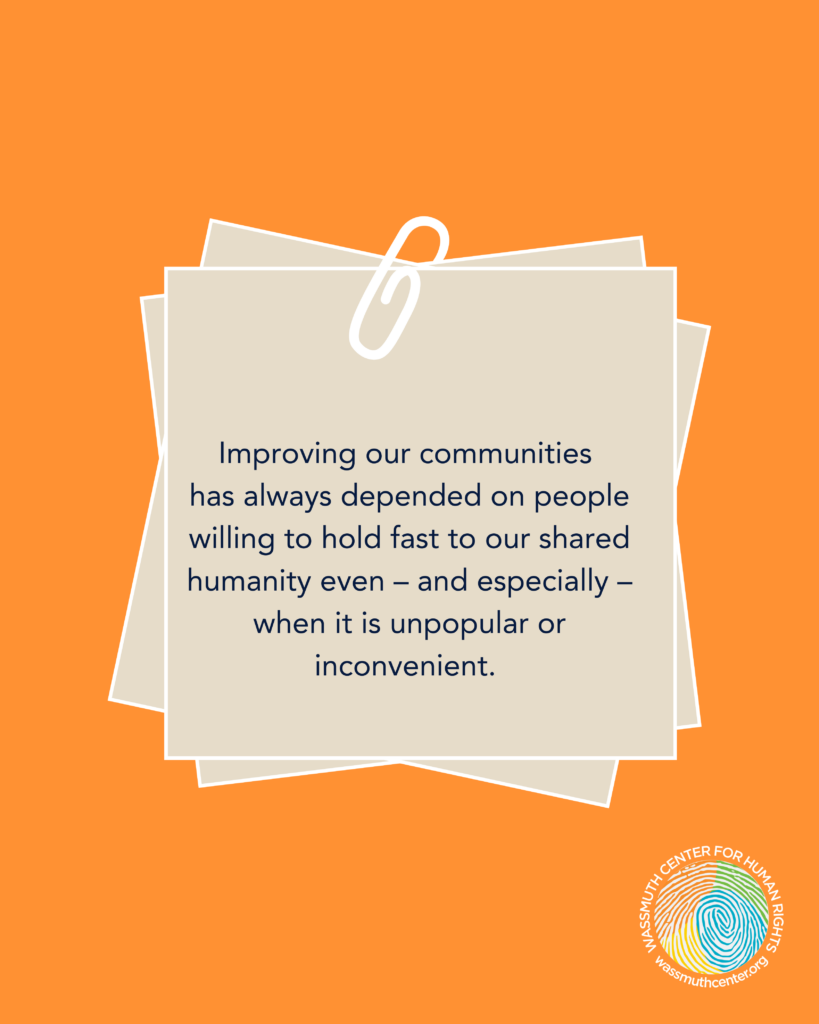
How Will We Respond? February 9, 2026 From the halls of the Idaho Statehouse to a Boise sidewalk to the social media account of the US president, we have seen how quickly dignity can be violated. The events of the past week are not isolated or unprecedented. They reflect a recurring dynamic in American history: during periods of political anxiety and social change, pressure mounts to silence dissent, mark certain communities as suspect, and test how firmly we will defend one another’s humanity. Again and again, ordinary people are faced with the same question: Will we accept these erosions as inevitable or respond with courage and care? In Idaho, that question surfaced when a veteran public servant with more than three decades of experience protecting civil rights was abruptly removed from the Idaho Human Rights Commission. This happened after controversy arose over the concerns she shared online about the killing of Alex Pretti and ICE activity in Minnesota. Estella Zamora’s reappointment was withdrawn before legislators could vote to confirm her. Zamora’s removal echoes earlier chapters in history when those charged with protecting democratic values were pushed out for speaking too plainly. During the civil rights era, educators and government workers lost their positions for opposing segregation or advocating too openly for equal protection under the law. The consequences were lasting: institutions weakened, expertise was lost, and the public was clearly sent the message that defending human dignity carries personal risk. In this case, Zamora was effectively sidelined for speaking in defense of human rights, illustrating how easily principled voices can be silenced when moral clarity becomes politically inconvenient. Then, on Friday, a wave of fear swept through a Boise neighborhood when a parent was taken by federal officers outside a preschool during morning drop-off. No warrant was shown, and the targeting of a Latino parent sent a chilling signal of racial profiling. Scenes like this are unfolding across the country. We have also seen this kind of action repeated throughout US history — from the immigration raids that followed World War I to the mass deportation campaigns of the 1950s that relied on public visibility to intimidate entire communities. The impact has always extended far beyond the individuals detained: children traumatized, families separated, and communities forced to live with constant uncertainty. In Boise, school district leaders moved quickly to reassure families about students’ rights, but the sense of vulnerability lingers, especially for people of color. Nationally, another familiar warning sign appeared when a video posted on the president’s social media account depicted Barack and Michelle Obama as apes as part of a video promoting false claims about the 2020 election. And while the clip was widely condemned and eventually removed, it demonstrates how rapidly dehumanizing narratives can spread. Such imagery draws from a long history of racist caricature used to discredit leaders, suppress political participation, and justify exclusion. These tactics have repeatedly been employed when democratic norms are under strain and when weakening trust in shared humanity becomes a tool for consolidating power. Taken together, these events reveal a broader pattern of dignity violations. They show how quickly people can be reduced to symbols in political conflicts rather than recognized as full human beings with families, histories, and hopes. These moments are pivotal – not only for those directly harmed, but for the communities that decide whether to look away or speak up. When tension rises, we face a choice. The most durable progress in our history has come when people invested more deeply in relationships, slowed their judgements, widened their listening, and insisted that every person’s worth is non-negotiable. This is not idealism. It is a proven civic practice. Improving our communities has always depended on people willing to hold fast to shared humanity even – and especially – when it is unpopular or inconvenient. We do not need to share political views to share a commitment to one another’s humanity. Communities endure not because they avoid disagreement, but because they refuse to let disagreement eclipse compassion. A just society is sustained through transparency, restraint, courage, and the daily practice of treating one another as neighbors first. So how can you make that commitment tangible where you live? Reach out to someone who feels shaken. Support educators and families trying to keep children steady in uncertain times. Participate in local civic life with curiosity rather than contempt. Small acts of presence, multiplied across cities and states, have always been the foundation of meaningful change. Our future will not be determined only by what happens in capitol buildings or on national stages. It will be shaped in kitchens and classrooms, community halls and front yards — places where people like us show up for one another and choose dignity over division and connection over fear.
Equal Protection
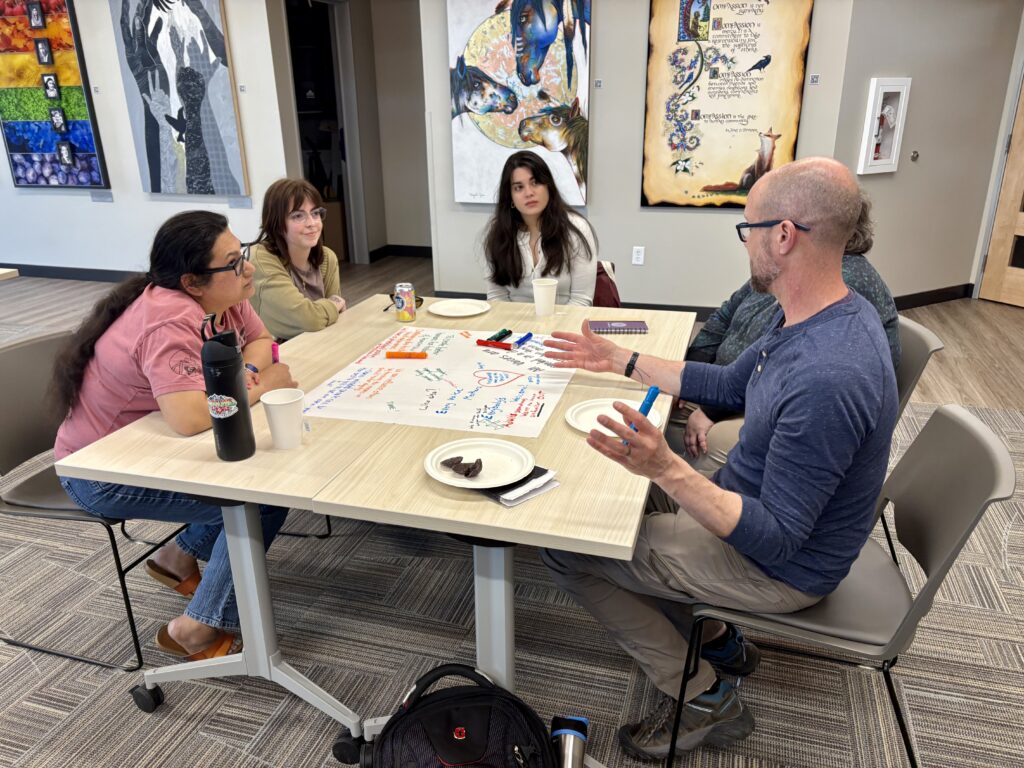
Strong Communities Require Equal Protection Under the Law February 2, 2026 Idaho prides itself on strong communities where neighbors look out for one another and everyone has the opportunity to contribute meaningfully and live with dignity. For generations, Idahoans across the political spectrum have embraced the hard work needed to build these communities. Fairness, personal responsibility, and respect for one another are not partisan ideals; these values are the foundation of Idaho’s civic character. Today, that foundation is under pressure, and our character — and the direction the country could take — is being tested. A newly introduced piece of legislation would prevent Idaho cities and counties from adopting local anti-discrimination protections that go beyond state law. Because Idaho’s Human Rights Act does not include sexual orientation or gender identity, the measure would eliminate some of the only legal safeguards currently available to LGBTQ+ residents in parts of the state. At its core, this bill raises a fundamental question: Are all people entitled to equal protection under the law? Idaho’s history shows that equality has often been contested. In the 1990s, voters came close to passing Proposition 1. This ballot initiative would have barred state and local governments from recognizing LGBTQ+ people as a protected class or extending legal safeguards based on sexual orientation, effectively locking discrimination into statute and preventing future efforts to protect civil rights. While that measure failed, Idaho did not act to close existing gaps. The Legislature has refused to “Add the Words” to the Idaho Human Rights Act to include sexual orientation and gender identity. As a result, LGBTQ+ Idahoans are left without consistent statewide protections, and the state has become a testing ground for policies that could serve as a model for exclusion in other parts of the country. The consequences of this policy are real. Without clear statewide safeguards, individuals have reported being denied housing, passed over for jobs, and turned away from businesses. Families face uncertainty about whether they can remain safely in their hometowns. Young people are growing up amid public debates questioning their worth as people. These conditions strain mental health, contribute to youth isolation and suicide risk, and undermine trust in public institutions meant to protect everyone equally. In response, communities across Idaho have stepped in to uphold equality locally. Two counties and a dozen Idaho cities, including Idaho Falls, Meridian, Sandpoint, Boise, and Driggs, have adopted ordinances affirming that discrimination has no place in their communities. In the absence of comprehensive statewide protections, these measures have helped establish clearer standards for fairness, safety, and accountability. They reflect the widely held belief that strong communities depend on respecting every person’s rights. They also demonstrate that inclusion and economic vitality go hand in hand; many of these localities rank among Idaho’s most dynamic centers for innovation and growth. The proposed legislation threatens to undo much of this progress. Removing these protections would carry serious human consequences and weaken Idaho’s social and economic fabric. At a time when the state is grappling with budget shortfalls, potential Medicaid reductions, and job losses, policies that allow discrimination risk destabilizing communities and discouraging businesses from locating or expanding here. Idaho has long valued pulling together and taking care of each other in difficult times. Inviting exclusion and discrimination runs counter to this tradition. The stakes extend beyond economics or local governance. For decades, Idaho has wrestled with how best to ensure that LGBTQ+ residents and others excluded from protective policies can live safely and without fear. Local ordinances have helped narrow that gap. This legislation threatens to undo that progress. Protecting people from discrimination — regardless of who they are or whom they love — is not merely a legal question. It is a declaration of our shared values and a measure of Idaho’s commitment to equality. At this pivotal moment, Idaho faces a choice — and the rest of the country should pay attention. Communities thrive when every person’s rights and humanity are respected. By learning from history and reaffirming our shared commitment to fairness, Idaho can continue building a state where every neighbor is seen, valued, and safe.
“Never Again” is a Moral Discipline
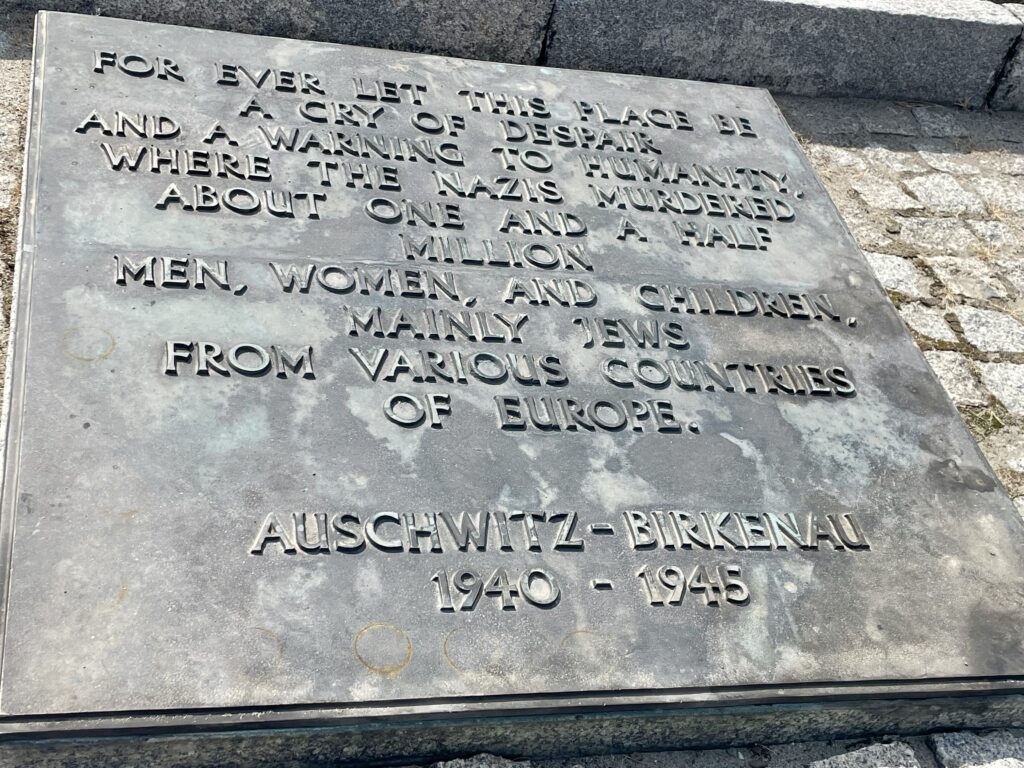
“Never Again” is a Moral Discipline January 26, 2026 On Tuesday, January 27, the world will observe International Holocaust Remembrance Day. We commemorate the liberation of Auschwitz-Birkenau, where an estimated 1.1 million people were systematically murdered by the Nazi regime between 1942 and 1945. When Allied forces entered the camp, they encountered emaciated people suffering from disease and starvation. Barely able to speak, survivors recounted what had taken place. What they described was not random brutality, but deliberate, bureaucratic, and sustained dehumanization — a process that stripped people of dignity, rights, and ultimately life. Remembering history is never only about the past. It is also about recognizing patterns of human behavior so we can work toward a better future. This year it feels especially urgent to remember. Over the past several weeks, events in Minnesota have drawn international attention as our federal government has deployed several thousand agents to the Minneapolis metro area to enforce immigration policies. On Saturday, January 24, ICE agents fatally shot Alex Pretti as he tried to help a woman who had fallen to the ground during a confrontation between agents and protesters. This occurred just two weeks after Nicole Good was killed while serving as a community observer during an enforcement operation. These tragedies have unfolded amid growing public concern about the expansion of government power and violations of people’s constitutional rights. As we mourn this tragic loss of life, we must also recognize the pattern of dehumanization underlying current events. At the Wassmuth Center, we call this progression the Spiral of Injustice — a process in which fear-based rhetoric leads to discriminatory policies, which in turn normalize coercion and violence against entire communities. We must pay attention when groups are portrayed as threats to public order or national identity; when extraordinary enforcement measures become routine; when militarized responses to dissent are called necessary; and when legal authorities expand faster than public accountability. These dynamics mirror the early stages of systems that gradually erode humanity, reducing people to problems to be managed rather than neighbors to be protected. Holocaust remembrance exists precisely to sharpen our moral vision at such moments. We can learn a lot from history about how the Spiral of Injustice devolves. The Nazi regime did not begin with death camps. It began with a series of social and legal measures that systematically marked certain groups as outsiders. The path to Auschwitz started with propaganda that framed Jews, communists, LGBTQ people, individuals with disabilities, and other minorities as threats to society. Identification badges became mandatory, visibly signaling who belonged and who did not. Laws stripped Jews of citizenship and forbade marriages between Jews and non-Jews, formalizing exclusion into the legal code. Jewish-owned businesses were boycotted and seized. What began as discriminatory rhetoric and policy escalated as violence was reframed as protection and exclusion as loyalty. This gradual normalization desensitized people to harm, making more extreme acts possible. The recent surge of federal immigration enforcement and the resulting deaths of civilians in Minneapolis and at detention centers across the country remind us that no societies are immune to such spirals. The atrocities of that era reshaped the world order, and the horror at those grave human rights violations gave rise to the Universal Declaration of Human Rights, a monumental effort to collectively say never again. Yet as the years pass and fewer survivors remain to share their warnings, the responsibility of remembrance becomes more urgent. Bearing witness to the Holocaust helps us identify warning signs today. We must learn to recognize the language, imagery, and narratives rooted in exclusionary ideologies that continue to circulate. Remember those who were murdered, reflect on the path that led there, and then commit to interrupting the Spiral of Injustice where you live. Check on a neighbor. Join an interfaith gathering. Deepen your understanding through a book. Speak with elected officials. Practice nonviolent responses. We must understand the stakes and act. Stay in community. Stay engaged. Stay aligned with your values. Never again is a moral discipline. Each generation must decide whether dignity will remain an abstraction or become a guiding principle. We honor the victims of the past not only by remembering their suffering, but by insisting — here and now — that fear, hatred, and state power must never eclipse our shared humanity.
From Legacy to Action
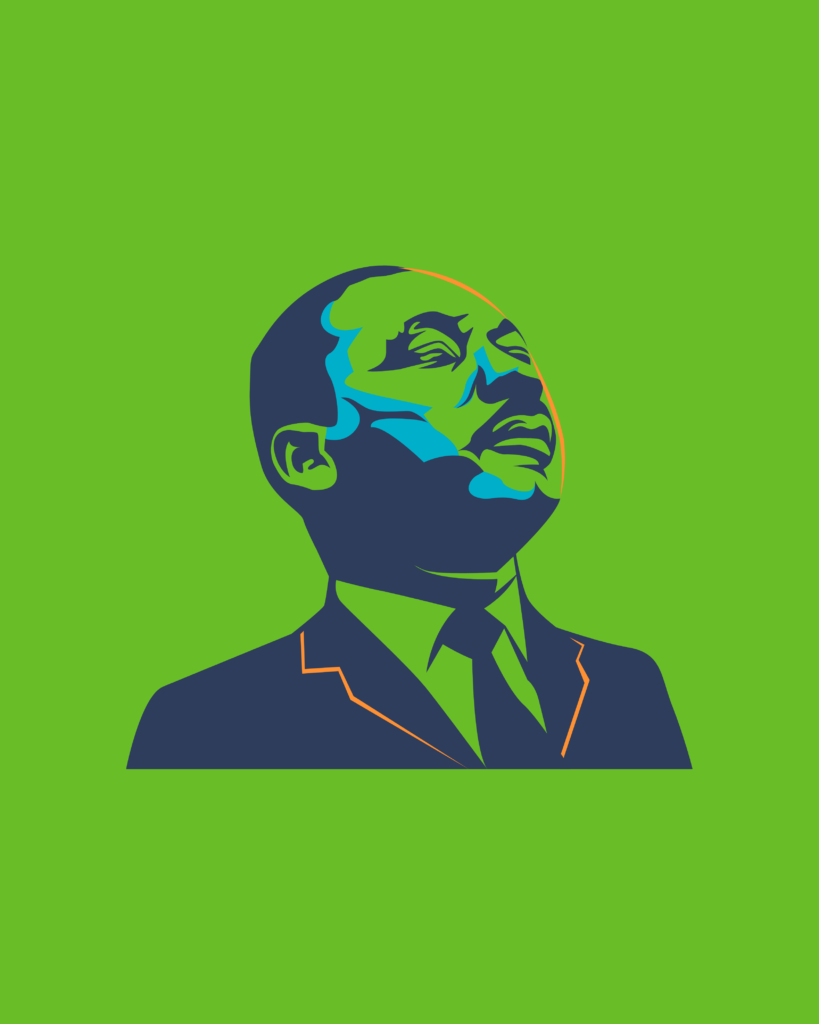
From Legacy to Action January 19, 2026 Today we celebrate the life, work, and enduring legacy of Dr. Martin Luther King, Jr., a leader whose vision of a beloved community calls us to build a society rooted in dignity, strengthened by diversity, guided by equality, and sustained by joy. In Idaho, this day also marks Idaho Human Rights Day — a distinction that reflects both our aspirations and our complicated history. Across the country, MLK Day is widely observed with marches, speeches, and reflections on the American promise of liberty and justice for all. But in Idaho, that recognition did not come easily. This struggle to be seen and honored reminds us why Dr. King’s vision of a beloved community matters now more than ever. He challenged us to confront injustice, tell hard truths, and dedicate ourselves to collective care. At a moment when legislation increasingly threatens to roll back hard-won progress, and when efforts to erase difficult chapters of our national story are gaining traction, his vision is more vital than ever. Today is not only a day of remembrance. It is a day of responsibility. In Idaho and beyond, we are called to reexamine whether our actions truly align with our values. Are we living up to the ideals we claim to hold? MLK Day became a federal holiday in 1983, but Idaho was slow to adopt it. Some lawmakers objected to a day dedicated to one person, particularly a person of color they characterized as having “communist tendencies.” After years of public advocacy in support of the holiday, a pivotal moment came in 1989 when Boise State University student Eric Love organized a peaceful march to the Idaho Capitol. More than 700 students and community members gathered to demand recognition of Martin Luther King, Jr.’s legacy. Bill Wassmuth, the Center’s namesake, spoke that day about the deep connection between civil and human rights and joined the crowd in singing “We Shall Overcome.” It was a powerful expression of what a beloved community looks like in action: people coming together across differences to insist on the dignity of all. In 1990, a compromise finally led Governor Cecil Andrus to establish Martin Luther King, Jr. – Idaho Human Rights Day, making Idaho the 47th state to recognize the holiday. The dual designation was intentional, affirming that civil rights and human rights are inseparable and that both belong to everyone. Idaho remains unique in this combined observance. Today, however, we are witnessing a troubling reversal of those historic efforts. Laws dismantling diversity, equity, and inclusion initiatives; policies restricting bodily autonomy and healthcare; attacks on public education; and attempts to rewrite history all undermine the very freedoms Dr. King and countless others worked to secure. Threats and violence toward people based on race, ethnicity, or immigration status violate not only our shared humanity, but the fundamental rights promised by our Constitution. These actions stand in direct opposition to the legacies of Dr. King, Bill Wassmuth, Eric Love, and so many others who worked to advance civil and human rights. We often hear appeals to “Idaho values” and “American values,” but this moment requires us to be specific: which values, and toward what kind of community? Dr. King’s vision of a beloved community provides a clear answer: one defined by dignity, safety, opportunity, and shared responsibility for one another. These principles reflect the best of who we are as Idahoans and Americans. As we reflect on that vision today, we must ask whether our words and actions are actively shaping a community that embodies these values. Living out this vision requires more than reflection. It demands intentional action in our everyday choices. One way is to hold fast to your values and align your actions accordingly. If you value community, find ways to connect and care for others. If you value dignity, let your words and actions reflect the shared humanity of every person you encounter. If you value inclusion, be intentional about creating spaces of belonging at home, at work, and in your neighborhood. When we pause, reflect, and live into our values through our actions, we carry forward the work of those who came before us. Together, we can continue building a beloved community where human and civil rights are honored, protected, and shared by all.
Clarity in the Chaos

Clarity in the Chaos January 12, 2026 As we enter this new year, many of us carry more than resolutions. We hold grief, fear, exhaustion, and uncertainty. Around the world and close to home, people are navigating political upheaval, violence, and deepening divides — often alongside personal struggles that go unseen but shape our lives in profound ways. As crises multiply, the pressure to act quickly can overwhelm our capacity to listen, think, and respond with care. In these moments, the question is not simply what to do, but how to move forward in ways that align with our human rights values. When we uphold these values, we help create a world in which all of us can thrive. Failing to align our actions with our values can have far-reaching consequences, as recent events make painfully clear. In early January, a large-scale U.S. military operation captured Venezuelan President Nicolás Maduro, igniting international concerns about sovereignty. Several days later, an ICE agent fatally shot Renee Nicole Good in Minneapolis, prompting widespread mourning for the tragic loss of human life. And across the globe, millions of people continue to experience horrific human rights violations. These crises show that choices made without attention to underlying values can deepen suffering, erode trust, and perpetuate injustice – both globally and in our local neighborhoods. Yet, when faced with challenges, we often feel compelled to act immediately, attempt to fix what’s broken, and push forward. At the Wassmuth Center, we invite a different response — one that recognizes the weight of this moment while centering our deepest commitments to dignity, diversity, equality, and joy. Rather than rushing toward action, pausing to observe carefully and reflect deeply can support us to choose paths that align with our values. This approach channels our energy into intentional, principled action that strengthens communities and advances human rights. That is why, this month, we are focusing on the Wassmuth Powerful Practice: Align Actions With Values. This practice invites us to slow down, examine our human rights commitments, and respond in ways that honor them, even under pressure. Aligning actions with values is not about indecision or inaction; it is about moving forward with clarity, so that what we do reflects what we believe. This approach has long guided people working for meaningful change. Civil rights leader Ella Baker exemplified this kind of intentional action. During the early sit-in movement, she faced immense pressure to act quickly against segregation. However, Baker paused to ask critical questions about strategy, ethics, and power. She created space for reflection and collective planning, empowering her team to act deliberately and in alignment with their values — even amid urgent, high-pressure circumstances. Baker’s leadership demonstrates that clarity, principled action, and lasting change emerge when we take time to align our actions with our values. Today, with crises pressing from every direction, our instincts still pull us toward speed, certainty, and control. But aligning our actions with our values asks something different of us: to slow down, observe carefully, and choose our next steps deliberately. When we practice this alignment, we act not from fear or impulse, but from purpose, ensuring that even in difficult moments, our actions protect, restore, and advance human rights. We can bring this practice into our personal and political lives through intentional steps: These steps matter most in the everyday moments that test our patience, courage, and integrity. This might look like pausing before responding in a heated conversation, seeking more information before making a decision, or choosing empathy in a disagreement. It may mean noticing when our impulse is to react from fear, anger, or fatigue and instead asking, What action reflects the person I want to be? Practicing intentionality in small, personal decisions cultivates habits of reflection and principled action that ripple outward into our communities and institutions. This kind of intentionality is crucial because the stakes are high. When governments or communities respond to crises without aligning their actions with human rights values the result is widespread harm, diminished public trust, and an even more difficult path to sustainable peace. But when actions align with values, a different future becomes possible. On an individual level, this alignment can strengthen relationships and help us grow closer to becoming our best selves. In times of community trauma, it may involve prioritizing transparency and justice. In international and diplomatic contexts, acting intentionally can mean valuing diplomacy, human dignity, and the long-term well-being of civilians over short-term displays of power. While this approach does not eliminate conflict, it helps ensure that each decision contributes to a more just and joyful world. A new year invites us not just to do more, but to see more and to act with intention. By aligning our actions with our values — in our personal lives and across our communities — we can navigate 2026 with clarity and bring our deepest human rights commitments to life.
A New Year of Connecting, Learning, and Creating Together
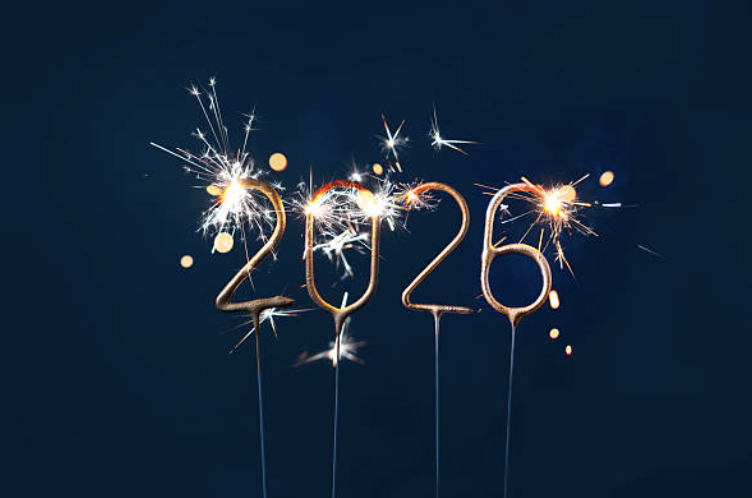
A New Year of Connecting, Learning, and Creating Together January 5, 2026 As we step into 2026, we are greeted with a meaningful opportunity to begin the year intention. It is a chance to pause, reflect on what matters most, and consider how to best show up for one another. This moment invites us to be clear-eyed about the challenges before us while also holding space for what is possible: communities that are just, joyful, and grounded in respect for the inherent dignity of every person. At the Wassmuth Center, this intention guides everything we do — from the programs we design to the partnerships we cultivate. We support learners of all ages in developing the knowledge and skills to recognize, interrupt, and prevent injustice. We know that education is a powerful catalyst for meaningful change. And while the path forward is complex, we remain steadfast in our belief that learning together—through reflection, dialogue, and shared inquiry—can transform both individuals and the communities in which we live . Four core values drive our work and inform every program, resource, and partnership at the Wassmuth Center: These values come alive through the work we carry forward each year, and 2026 promises to be a vibrant year of connection, learning, and growth. We look forward to the Cultivating Compassionate Communities Conference, where dialogue and collaboration will spark new ideas and deepen shared commitments to advancing human rights. We are also excited to welcome a new cohort of learners into the Human Rights Certificate course this winter, along with new cohorts of Wassmuth Youth Leaders and Wassmuth Human Rights Education Fellows later this spring. Thousands of kindergarten through university-level students will visit the Wassmuth Center for hands-on field trips that inspire curiosity, reflection, and meaningful learning. And we eagerly anticipate the Hansberger Arts Awards Showcase where we will experience and celebrate the powerful creative work of student artists whose voices remind us what dignity, diversity, equality, and joy can look like in action. None of this is possible without your support. We are deeply grateful to each of you for walking alongside us. Your curiosity, care, and commitment make advancing human rights possible. Thank you for continuing to connect, learn, and create with us. Together, we are building a future rooted in dignity, strengthened by diversity, guided by equality, and sustained by joy.
A Place to Belong
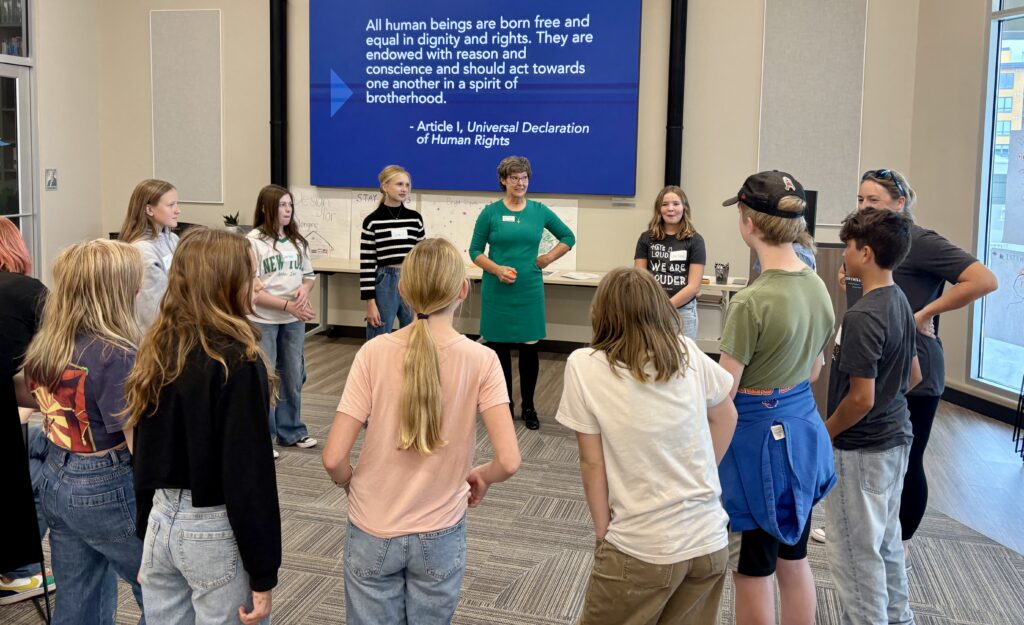
A Place to Belong December 29, 2025 On a Tuesday morning earlier this month, the Wassmuth Center came alive with laughter, curiosity, and care. Young children gathered in a circle for Compassion Crew. They laughed together, asked earnest questions, and created colorful artwork as they explored what it means to show kindness, how it feels to be included, and why we take care of one another. In these moments, the children were learning the power of honoring dignity and discovering that even the smallest acts of care can contribute to creating a more just and joyful world. Later that day, a bus arrived carrying high school students from a rural community in eastern Idaho. Their visit began at the Idaho Anne Frank Human Rights Memorial, where docents guided them through stories of courage and moral choice. Together, they considered the ways people are included or dehumanized and the consequences of those choices, tracing how seemingly small acts of avoidance and othering can escalate into discrimination and violence. From there, the students moved into the Philip E. Batt Education Building, where they learned about Holocaust survivor Pinchas Gutter and had the rare opportunity to ask him questions directly through cutting-edge technology in the Dimensions in Testimony exhibit. The questions were thoughtful and searching, informed by the understanding that history is not distant and its lessons shape the choices we make today. That evening, the building filled once again, this time with community members of all ages gathering for Generations for Justice Book Club. Chairs were pulled close as the group discussed Finding Eve by Michael and Angie Devitt. As the conversation unfolded, Tom, a first-time visitor to the Wassmuth Center, shared, “This book changed me.” It was a powerful moment, reminding us that when we slow down, listen deeply, and reflect together, doors open that we didn’t know were closed. Days like these defined 2025 at the Wassmuth Center. This was our first full year in the Philip E. Batt Education Building, and more than 15,000 people walked through our doors. Many more visited the Idaho Anne Frank Human Rights Memorial and engaged with our online programs and resources. The Center rarely feels still. Even in the quietest moments, there is a hum of intention and the sense that something meaningful is always unfolding. People arrive ready to listen, to reflect, and to be changed by what they encounter. Because of this community, the Center has become a place where curiosity is welcomed, reflection is encouraged, and dignity is practiced in every interaction. Throughout the year, we launched eight new human rights education programs, creating opportunities for learners of all ages to engage with the values of dignity, diversity, equality, and joy. From the preschoolers who gather each week for Compassion Crew to the thousands of students who travel from across the state for field trips at the Center, every encounter matters. Each learning experience moves us closer to the kind of world we know is possible — one in which justice is not abstract but lived in relationships, choices, and actions. As 2025 comes to a close, we return to that circle on the floor — to small hands passing art supplies, to students leaning forward with hard questions, to a first-time visitor discovering the impact of reading and discussing a book that powerfully explores important human rights questions. This is how change happens: moment by moment, when people gather with openness, courage, and care. Because of you, these moments ripple outward, creating a world where human rights are a lived reality for more and more people. Thank you for making the Wassmuth Center a place where this work can continue and for ensuring in the years ahead there will always be a circle to join, a story to hear, and a space to belong.
The Work of Equality
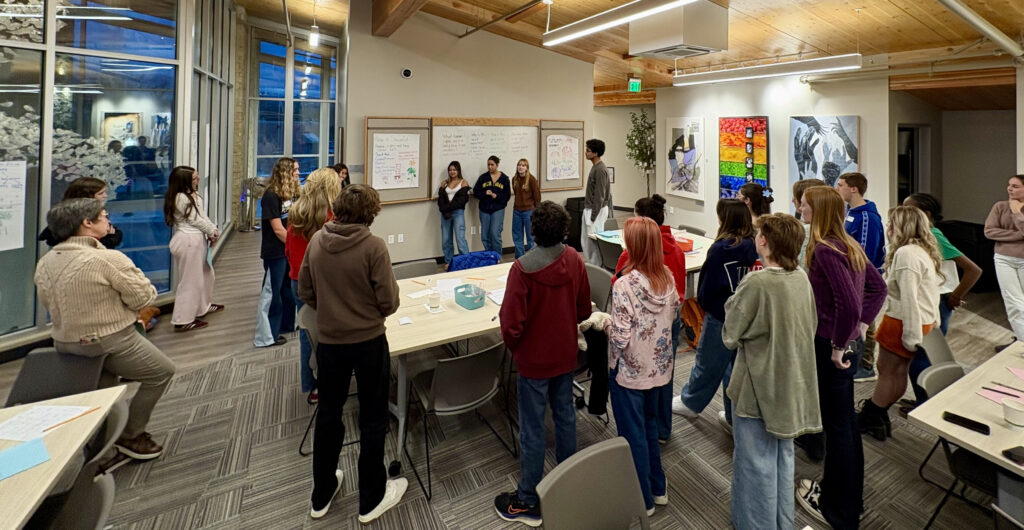
The Work of Equality December 22, 2025 Who gets to belong? Whose rights are protected when systems are strained, fear is amplified, and resources feel scarce? As we approach the end of 2025—a year marked by upheaval and sustained debate about who we are as a nation and a global community—these questions feel especially urgent. How we answer them determines who is protected, who is pushed to the margins, and whose humanity is affirmed in moments of uncertainty. They remind us that equality is not an abstract ideal. It is a foundational human rights commitment, serving both as a measure of justice and a safeguard of human dignity. Equality emerged as a global commitment precisely because the cost of denying it had been made devastatingly clear. Article I of the Universal Declaration of Human Rights (UDHR) affirms that “all human beings are born free and equal in dignity and rights.” Drafted in the aftermath of World War II, this principle surfaced in direct response to the catastrophic consequences of systems built on exclusion, hierarchy, and dehumanization. The Holocaust was justified by the belief that some lives were inherently worth less than others. This belief enabled discrimination, violence, and ultimately mass murder. In the UDHR, equality is articulated not as a vague aspiration, but as a moral and legal imperative — a recognition that human worth is inherent and cannot be ranked, earned, or withdrawn. Honoring that imperative would require nations to confront their own histories and dismantle deeply embedded structures of exclusion. In the United States, the promise of equal protection under the law existed alongside slavery and Jim Crow laws. The Civil Rights Movement offers a powerful illustration of how equality functions not only as a guiding value, but as a demand for accountability. When Black Americans challenged segregated schools, voter suppression, and discriminatory housing policies, they were not seeking special treatment. They were insisting that the nation live up to its own stated commitments. Equality, in this sense, does not mean sameness; it means fairness grounded in dignity. This distinction remains important today. Contemporary debates about accessibility, immigration, and economic opportunity often hinge on misunderstandings about what equality truly requires. This commitment does not demand identical treatment regardless of circumstance. Rather, it calls for identifying and addressing structural obstacles—physical, social, economic, and institutional—that prevent people from fully exercising their rights. Disability rights offer a clear example. Curb cuts, captioned media, and flexible work policies are not exceptions or favors; they are practical expressions of equality made real, ensuring that participation is not limited by design. These principles are present in everyday life more often than we may realize. Many of us only recognize accessibility challenges after an unexpected injury changes how we move through the world. We instinctively adjust meals for a child with a food allergy or slow our pace for an aging parent who needs additional support. Such moments reveal a critical truth: equality is relational and contextual. It requires attentiveness, empathy, and a willingness to respond. When these actions are repeated across families, schools, workplaces, and communities, they ripple outward, shaping systems and strengthening the social fabric. In times of uncertainty like those we are living through now, equality is often the first principle tested. Justice is realized when access to safety, participation, and opportunity is no longer determined by circumstance or identity. Because barriers are frequently intersectional and cumulative, advancing equality demands sustained commitment rather than one-time solutions. Laws and policies provide essential frameworks, but it is the daily choices and collective actions of individuals and institutions that bring this principle to life. As we look toward 2026, centering equality must be more than a hopeful aspiration. When we treat equality as a lived commitment rather than just a stated value, we strengthen our shared capacity to honor human dignity and cultivate genuine belonging. Equality asks something of each of us: to notice whose needs are unmet, to question whose voices are missing, and to challenge systems that quietly normalize exclusion. In the new year, the work before us is not only to ask these questions, but to practice answering them with care. The future we build will reflect the choices we make today. Will we allow fear and scarcity to narrow our sense of responsibility, or will we respond with a renewed commitment to seeing each other as equals?
Leading with Light

Leading with Light December 15, 2025 At the Wassmuth Center, our work is guided by a single, unwavering principle: every person has inherent dignity. Dignity is the foundation of human rights, and it is threatened whenever fear leads us to see people as problems to control rather than human beings to honor and protect. Fear narrows our vision and makes it easier to justify policies that strip others of safety, belonging, or due process. Like the torch of the Statue of Liberty, nations that uphold human rights cast light into places shadowed by persecution and oppression. But when fear takes the lead, that light dims and we all feel its absence. In recent weeks, immigrants in the United States have felt that dimming acutely. After the tragic shooting of two National Guard members in Washington, D.C., federal actions have targeted refugees and Special Immigrant Visa holders from Afghanistan, imposing measures that jeopardize their safety and stability. For decades, the U.S. Refugee Admissions Program has protected those fleeing persecution for their race, nationality, religion, ethnicity, or social group. That commitment has anchored both our moral leadership and our global standing. Abandoning it weakens both. The human impact of these shifts became clear at a recent gathering of local Afghan leaders at the Wassmuth Center. These men and their families were welcomed to the United States because they helped our government and military in Afghanistan. They served as interpreters, pilots, medics, and in other essential roles. Their work placed their families at significant risk, and in return, the U.S. pledged to protect them when our forces withdrew in 2021. Despite the turmoil of that withdrawal, the commitments our government made initially remained in place. But now, as new guidelines continue to unfold, their families’ futures have become precarious. They spoke about the real possibility of being separated from loved ones or forced back to a country where imprisonment or death is near certain. They expressed sorrow over the D.C. shooting and a deep sense of disappointment that the American ideals of dignity, freedom, and agency they trusted might not be extended to them. They described the harsh reality of life under an extremist, theocratic government that has become financially, socially, and culturally unbearable and the hope they carried for a stable life here in Idaho. One father shared how he makes sure his wife and children carry their documents with them at all times and about how he is always looking over his shoulder. And yet, even as their situations grow more uncertain, these families continue contributing to their communities and supporting one another with remarkable resilience. Their story is not unique. Across immigrant communities, lives are significantly affected by policies rooted in fear rather than dignity. Here in Idaho, our Afghan neighbors remind us of the responsibility we all share: to lean into our national aspirations of liberty and justice for all, to resist broad-brush judgments, and to ensure that the actions of one are never used to justify the punishment of many. In this season of light, let us renew our commitment to honor the dignity of every person in our community. And may our nation choose to shine as a light the world can see.